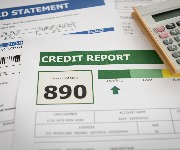Budget 2021: what can we expect from Rishi Sunak on Stamp Duty, Capital Gains Tax and pensions?

The Chancellor is set to deliver his second Budget later today, but what will it include?
Later today, Rishi Sunak, the Chancellor of the Exchequer will stand up in the House of Commons and deliver his second Budget.
It’s fair to say he’s had rather a testing time since gaining control of the nation’s purse strings, with the twin financial challenges of Brexit and Covid-19 to deal with.
The reality is that Government spending over the last year has been absolutely extraordinary, and the Chancellor now faces something of a balancing act.
He knows full well that millions are in a testing position when it comes to managing their own finances, and he needs people spending money in order to get the economy moving again.
But he also clearly wants to start bringing in some money to cover some of that incredible Government spending.
So what could be in his sights in today's speech? And what would it mean for your money?
Stamp Duty
One of the first measures announced by the Government last year after the first lockdown was the introduction of a Stamp Duty holiday which meant that no tax was due on the first £500,000 of any property transaction.
It’s proven enormously successful in keeping the housing market moving, to the point that house prices have shot up. According to the latest house price index from Halifax, average prices in January were up by 5.4% on the same point in 2020 ‒ not bad given we are in the midst of a global pandemic.
However, the swell in interest in purchasing a new home has led to lenders and conveyancers being swamped with cases, with home purchases now taking longer than usual, leaving an awful lot of would-be buyers facing a race against time in order to get those sales over the line in time.
As a result, there have been regular calls for the holiday to be extended, or at least tapered off rather than the current ‘cliff edge’ conclusion at the end of March.
And it seems to be working, with stories last week that the Chancellor is considering a six-week extension. We will know one way or the other after the Budget.

Capital Gains Tax
Capital Gains Tax (CGT) seems like one levy that’s sure for reform in the Budget. Last year the Treasury tasked the Office for Tax Simplification (OTS) with looking at ways that it can be improved, which led to 11 recommendations.
Chief among them are aligning the rates of tax with Income Tax rates, as well as dramatically slashing the annual tax-free allowance from its current level of £12,300 to as little as £2,000.
Critics have warned that such changes would act as a deterrent against investing and saving, but with the Treasury clearly keen on raising a bit of cash, some sort of CGT change seems inevitable.
For more on the OTS suggestions, and how to reduce your bill, check out our CGT guide.
Farewell to furlough?
The furlough scheme is due to end in April, but let’s be honest ‒ we’ve heard that before. And with the Government only just confirming its plans to tentatively exit this latest lockdown, it seems inconceivable that there won’t be some new form of income support in place for the months ahead.
That may be another extension of the furlough scheme, or it may see the introduction of the Job Support Scheme which was supposed to launch back in November last year before the Treasury relented into extending the furlough scheme once more.
John Harding, employment tax lead at PwC, noted: “This could be targeted at specific sectors, focusing on those industries hardest hit by the latest lockdown.”
Self-employed support
The support for self-employed workers has been rather different from that for those in regular employment, with grants paid through the self-employed income support scheme. Each of these grants has covered a three-month period and paid either 70% or 80% of usual profits.
We are currently in the middle of the fourth grant period, which runs for February, March and April, and yet bizarrely the Government still hasn’t actually confirmed details for precisely who is eligible nor how much they can claim through the grant.
The details are expected to come during the Budget, though really it should not have been too much to ask that they were confirmed a month ago.
Personal allowances
Everyone enjoys a personal tax allowance, which is the amount that you can earn each year before you start paying Income Tax.
It currently stands at £12,500, with the Government previously pledging to raise this in line with inflation each year.
There is plenty of chat that the Government will instead opt to freeze the personal allowance threshold, as well as the bands at which you start paying the various rates of Income Tax.
Tom Stevenson, investment director at Fidelity, explained: “This is probably the easiest target of all because freezing the levels at which individuals start to pay tax and mover into higher tax bands is a ‘stealth tax’.
Like inflation, it is a way of dipping into people’s pockets without many of them noticing. The £6 billion potential increase to Government revenues is not to be sniffed at either.”
Pension tax relief
It wouldn’t be a Budget without there being discussion over the tax reliefs offered on pension contributions, and particularly the fact that they are so much more generous towards higher and additional rate taxpayers than basic rate taxpayers.
Will this finally be the year when something happens though?
Steven Cameron, pensions director at Aegon, commented: “The latest rumour is Rishi Sunak is considering a move to a flat rate of relief at 25%. While this would reduce the incentives for Higher Rate taxpayers, it would actually improve the boost Basic Rate taxpayers receive.
“But any changes here are highly complex to implement, particularly for defined benefit schemes. This means individuals and pension schemes would need sufficient time to adapt.“
Online sales tax

While retailers that rely on a physical presence have had a traumatic 12 months, those who deal online have generally had a more fruitful time of it.
And they may help Sunak to revive the idea of an online sales tax.
Laurence Parry, partner at Kreston Reeves, suggested that rather than announce the actual details of such a tax in the Budget, Sunak is likely to instead go down the route of a consultation on the subject.
“Any tax is likely to see the cost on online sales increase and that will need to be balanced against the challenges businesses are facing in a post-Brexit environment. The question is will that tax fall on shoppers or on business?”
The Lifetime ISA penalty
If you withdraw money from your Lifetime ISA for a reason other than you are hitting retirement or to purchase a property, then you get whacked with a big charge.
It was previously 25% but was dropped to 20% due to the Covid-19 situation, though this reduction is only supposed to be temporary with the charge returning to 25% in April.
The Government has been lobbied to make this change permanent, with organisations like Hargreaves Lansdown arguing that it “unfairly penalises people who need to access their savings unexpectedly”.
The State Pension triple lock
Much like pension tax relief, there is always discussion around Budget time of how sustainable the State Pension triple lock is.
It guarantees that the State Pension increases in line with the highest of average earnings, inflation or 2.5%.
Tom Selby, senior analyst at AJ Bell, noted: “This promise comes at a price, however, with the OBR estimating maintaining the triple-lock would cost £6 billion more than a straight CPI inflation lock and £3.2 billion more than a lock to average earnings.
“Abandoning or watering down this manifesto pledge would undoubtedly be unpopular – particularly among older voters – although given the circumstances it could probably be justified.”
Most Recent
Comments
-
And footballers!
REPORT This comment has been reported. -
Tax online companies Amazon Google Facebook eBay and the rest they have had it far too good for far too long.
REPORT This comment has been reported.
Do you want to comment on this article? You need to be signed in for this feature









02 March 2021